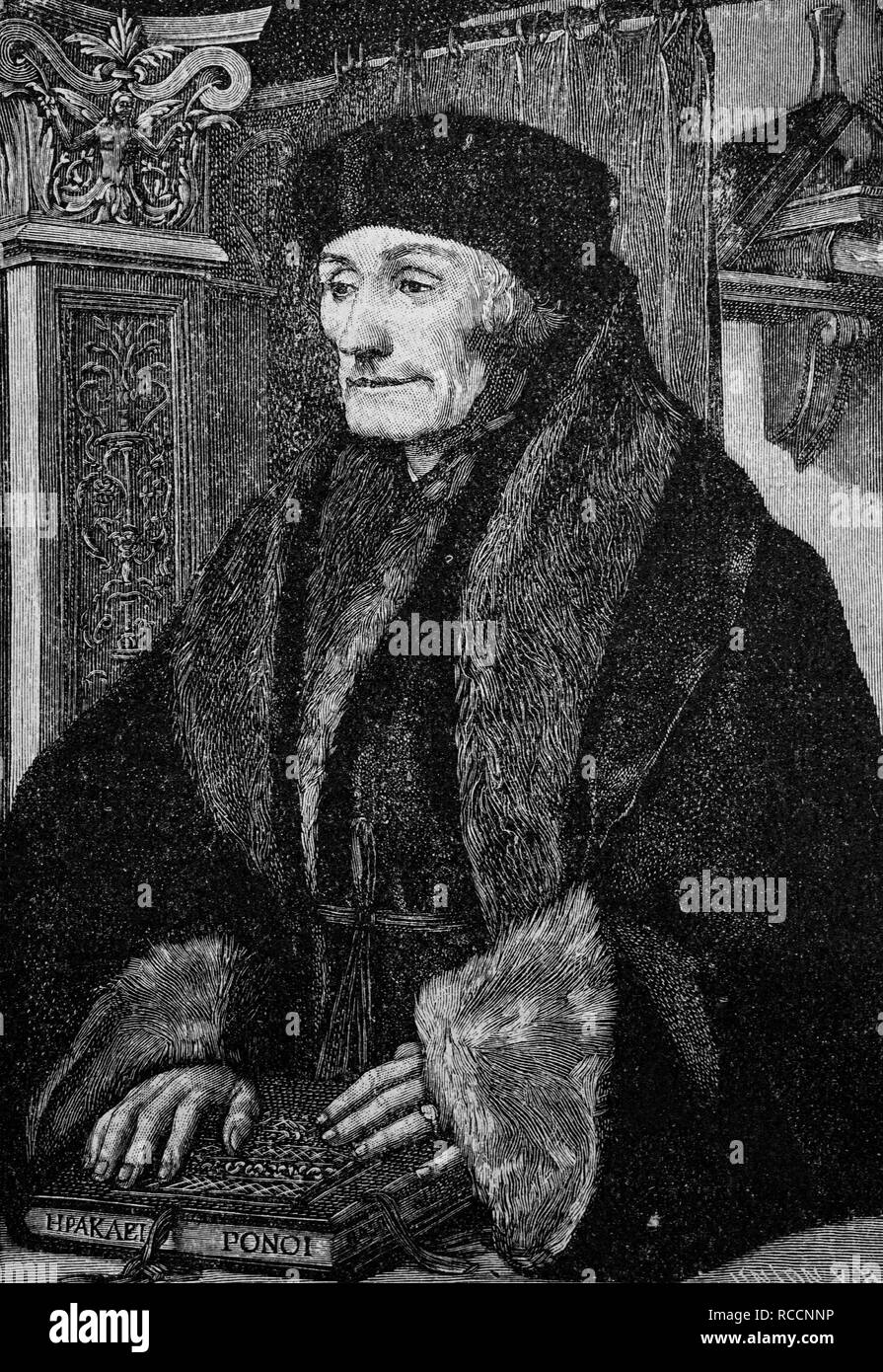
Desiderius erasmus roterodamus Fotos und Bildmaterial in hoher Auflösung Alamy
Desiderius Erasmus Roterodamus ( / ˌdɛzɪˈdɪəriəs ɪˈræzməs /; Dutch: [ˌdeːziˈdeːriʏs eˈrɑsmʏs]; English: Erasmus of Rotterdam or Erasmus; 28 October c.1466 - 12 July 1536) was a Dutch Christian humanist, Catholic theologian, educationalist, satirist and philosopher.

Erasmus defined the Northern Europe humanist movement and also translated the New Testament into
Adagia (singular adagium) is the title of an annotated collection of Greek and Latin proverbs, compiled during the Renaissance by Dutch humanist Desiderius Erasmus Roterodamus. Erasmus' repository [1] : 102 of proverbs is "one of the most monumental. ever assembled" (Speroni, 1964, p. 1).
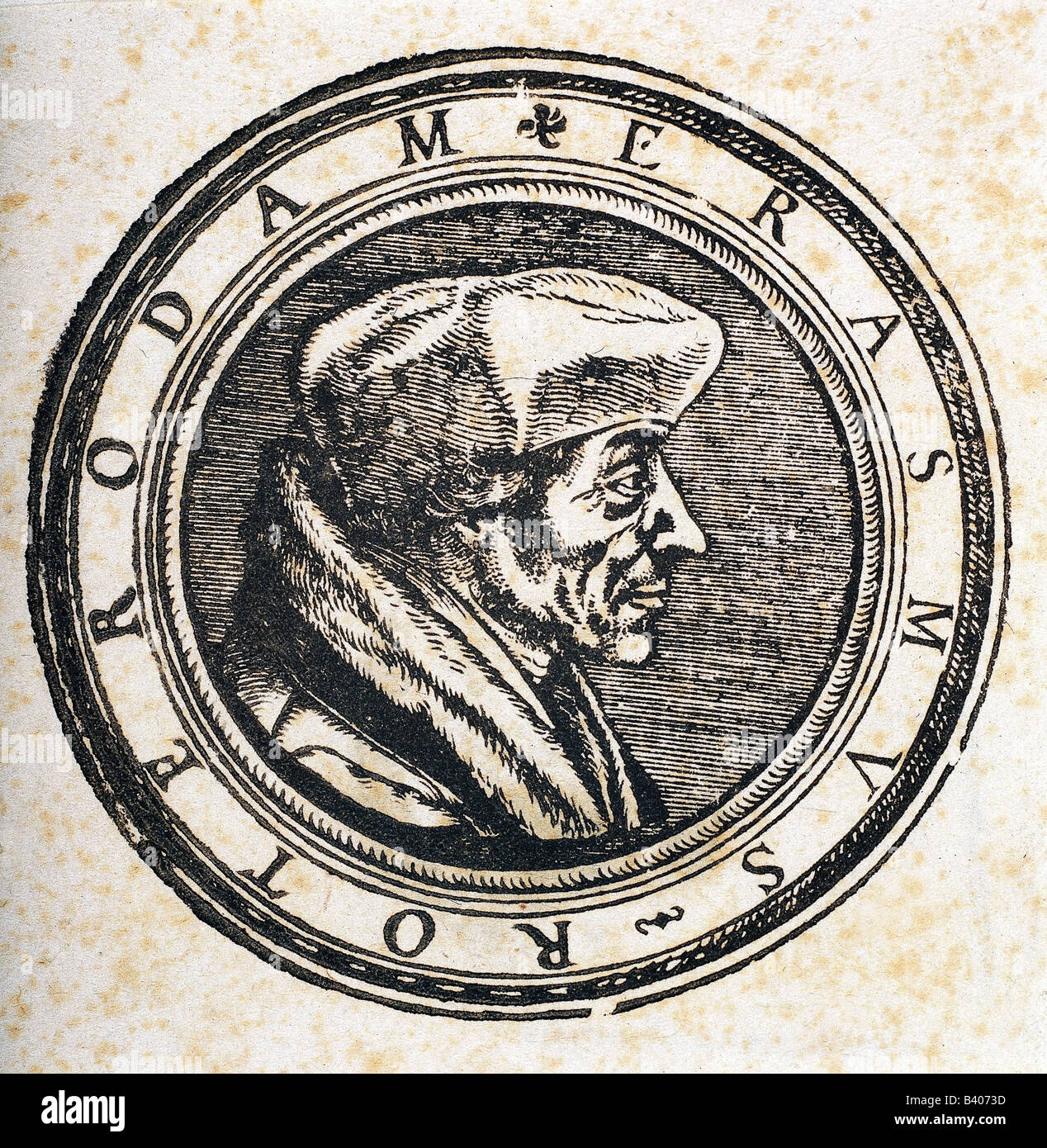
Desiderius erasmus roterodamus rotterdam dutch humanist birth name hires stock photography and
Erasmus was an indefatigable correspondent, controversialist, self-publicist, satirist, translator, commentator, editor, and provocateur of Renaissance culture. He was perhaps above all renowned and repudiated for his work on the Christian New Testament. He was not a systematic thinker, and he did not found a system or school of philosophy.

Erasmus Desiderius Erasmus Roterodamus, known as Erasmus of Rotterdam, or simply Erasmus, was a
Desiderius Erasmus Born: October 27, 1469 [1466?], Rotterdam, Holland [now in the Netherlands] Died: July 12, 1536, Basel, Switzerland (aged 66) Notable Works: "Adagia" "Antibarbarorum liber" "De libero arbitrio" "De sarcienda ecclesiae concordia" "Education of a Christian Prince" "Handbook of a Christian Knight" "Hyperaspistes"
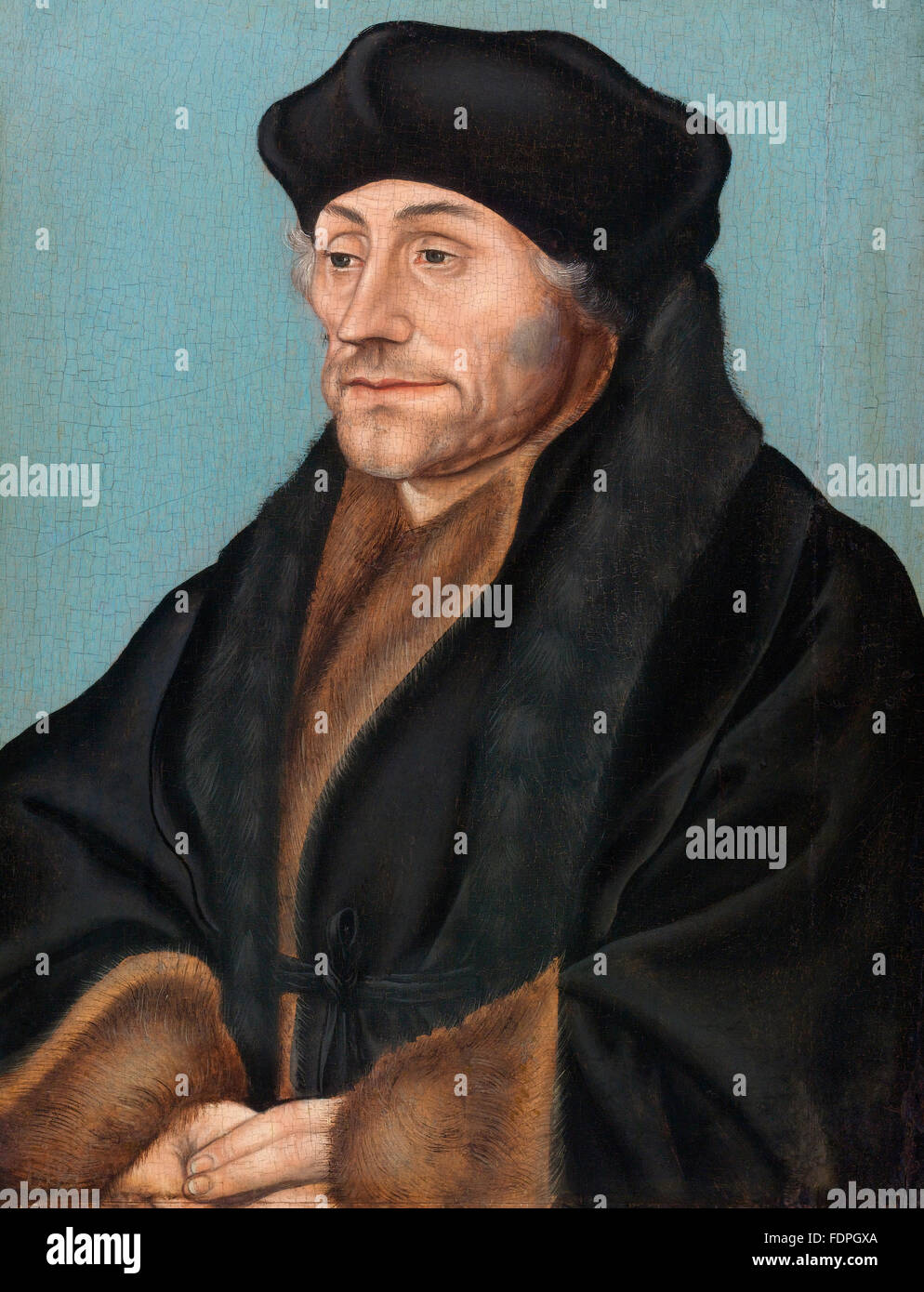
Erasmus Renaissance philosopher Desiderius Erasmus Roterodamus, of Rotterdam, portrait painting
Desiderius Erasmus (Stanford Encyclopedia of Philosophy) Desiderius Erasmus First published Wed Sep 27, 2017; substantive revision Thu Oct 14, 2021 Desiderius Erasmus of Rotterdam (1467?-1536) was not a systematic philosopher although we discern in the large body of his writings a certain Erasmian habit of mind.
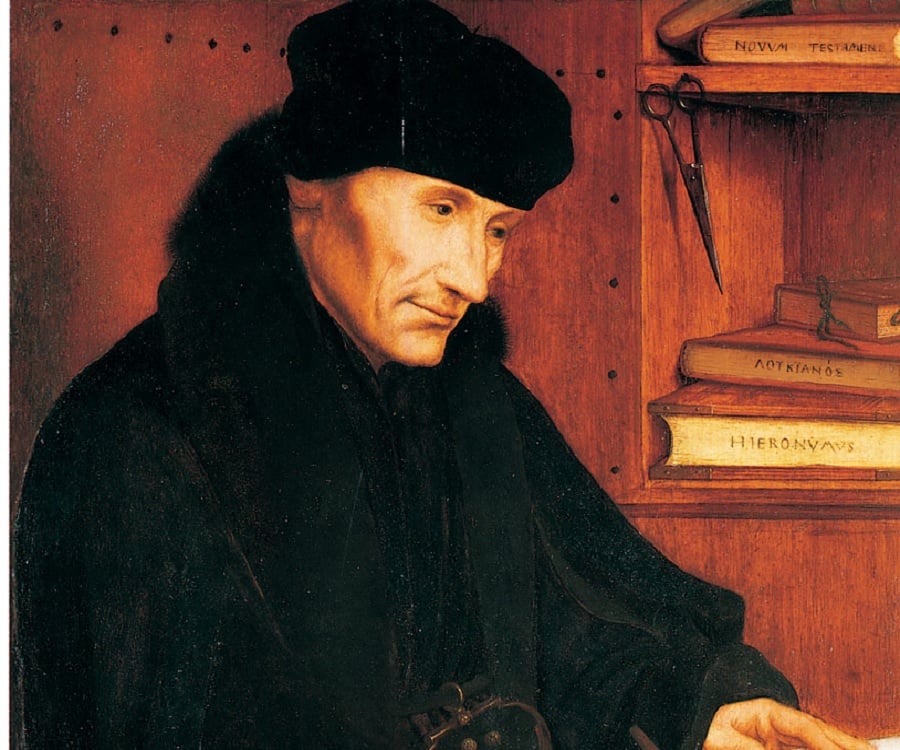
Desiderius Erasmus Biography Childhood, Life Achievements & Timeline
Desiderius Erasmus (c. 1469-1536) was a Dutch humanist scholar considered one of the greatest thinkers of the Renaissance. A prolific writer who made full use of the printing press, he produced editions of classical authors, educational treatises, translations, dialogues, and letters.
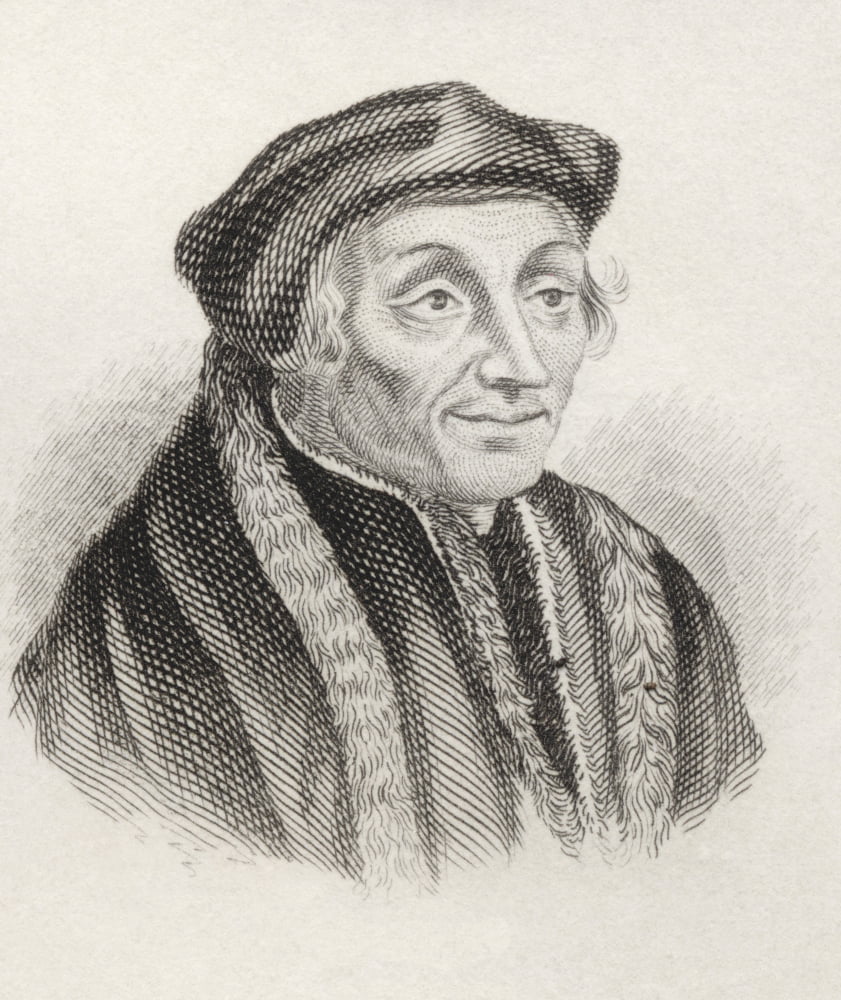
Desiderius Erasmus Roterodamus Aka Desiderius Erasmus Of Rotterdam Born Between 1466 And 1469
Desiderius Erasmus Roterodamus (28 October 1466 - 12 July 1536), known as Erasmus of Rotterdam, or simply Erasmus, was a Dutch Renaissance humanist, Catholic priest, social critic, teacher, and theologian. Erasmus was a classical scholar and wrote in a pure Latin style.
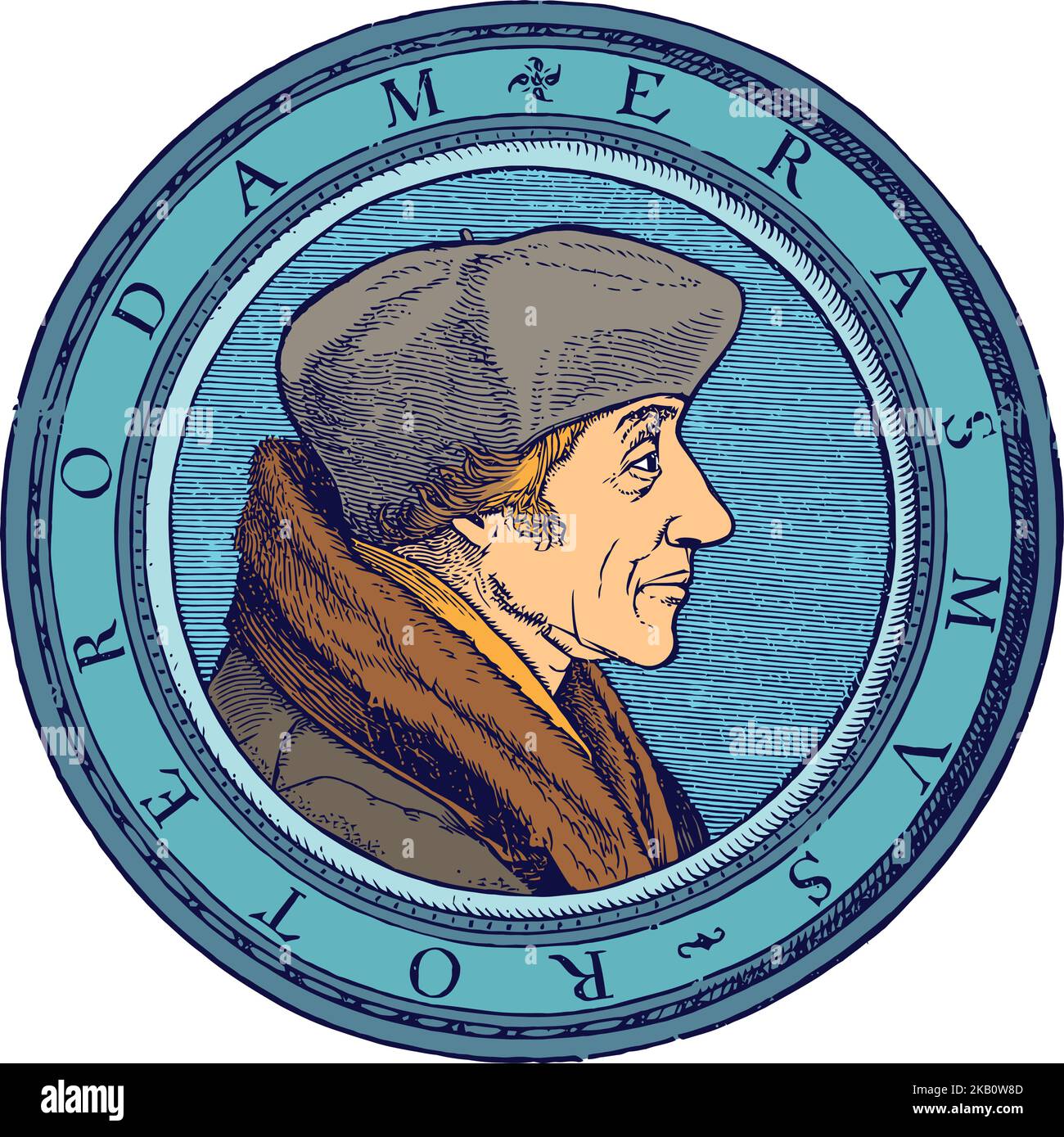
Portrait of Desiderius Erasmus Roterodamus, known as Erasmus or Erasmus of Rotterdam, was a
Erasmus Roterodamus, Erasmus, Desiderius, d. 1536, Érasme, Desiderius Erasmus. University of Toronto Press, Jan 1, 1990 - Religion - 376 pages. 0 Reviews. Reviews aren't verified, but Google checks for and removes fake content when it's identified
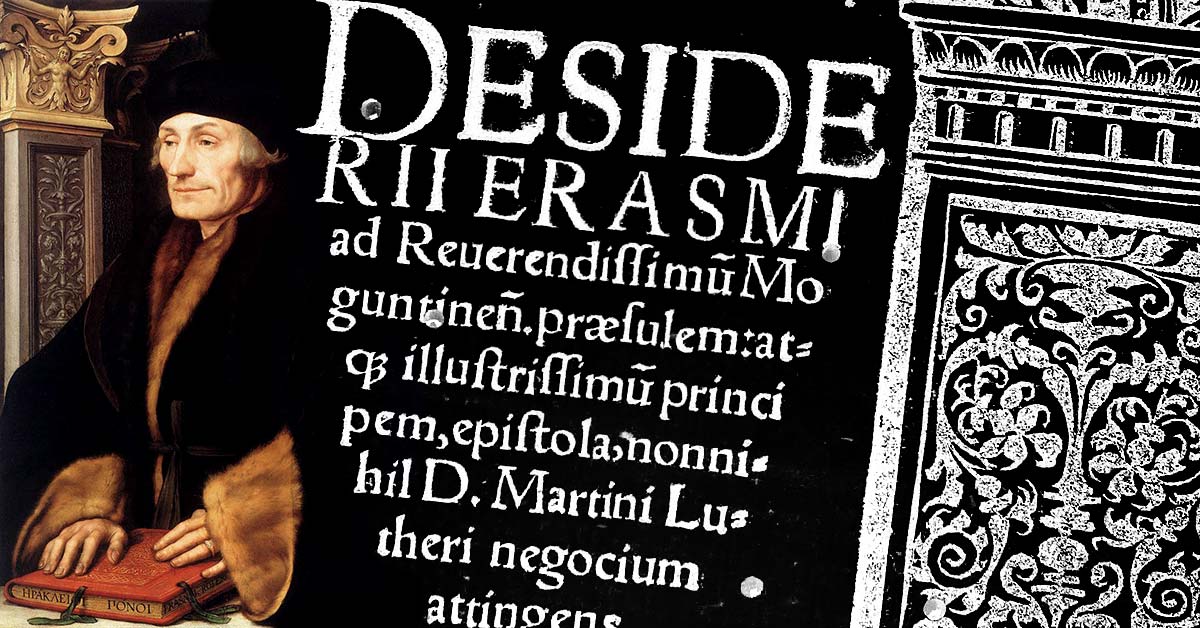
Lesidee Desiderius Erasmus Roterodamus Canon van Nederland
Érasme, Desiderius Erasmus, Erasmus Roterodamus, William Watson Barker University of Toronto Press , Jan 1, 2001 - Philosophy - 405 pages Erasmus was fascinated by proverbs and prepared a collection of more than 4,000 of them, accompanying each with his comments, sometimes in a few lines and sometimes in full-scale essays.
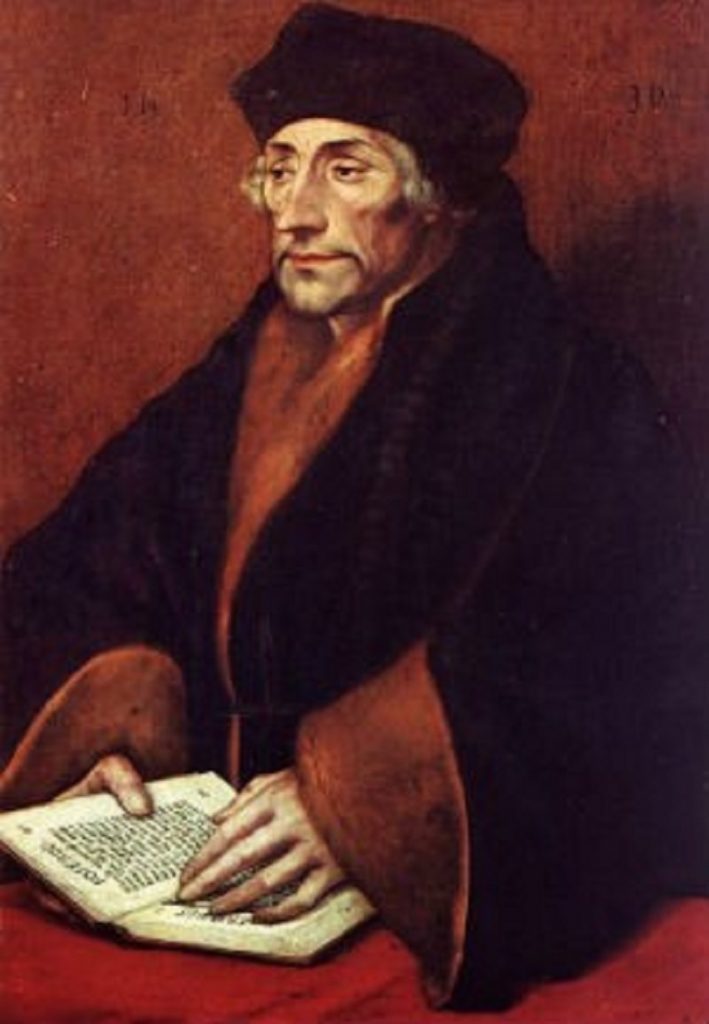
Erasmo de Roterdã Biografia, Igreja, Obras e Principais Citações
Desiderius Erasmus of Rotterdam was one of Europe's most famous and influential scholars. A man of great intellect who rose from meager beginnings to become one of Europe's greatest thinkers,.
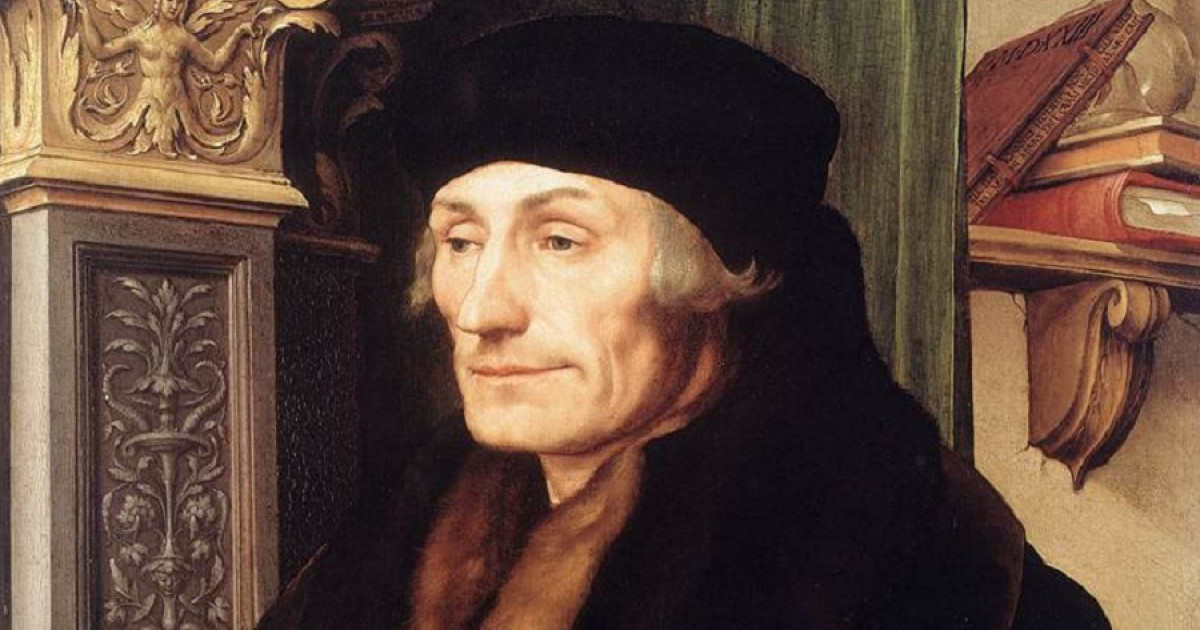
Erasmo de Róterdam biografía de este filósofo neerlandés
ERASMUS OF ROTTERDAM° (Desiderius Erasmus Roterodamus ; 1469-1536), European humanist, theologian, and writer. Netherlands-born Erasmus lived and worked in all major countries of Europe and wrote only in Latin. Erasmus' view of Judaism as a religion was fully determined by traditions of the New Testament (especially by the epistles ascribed.
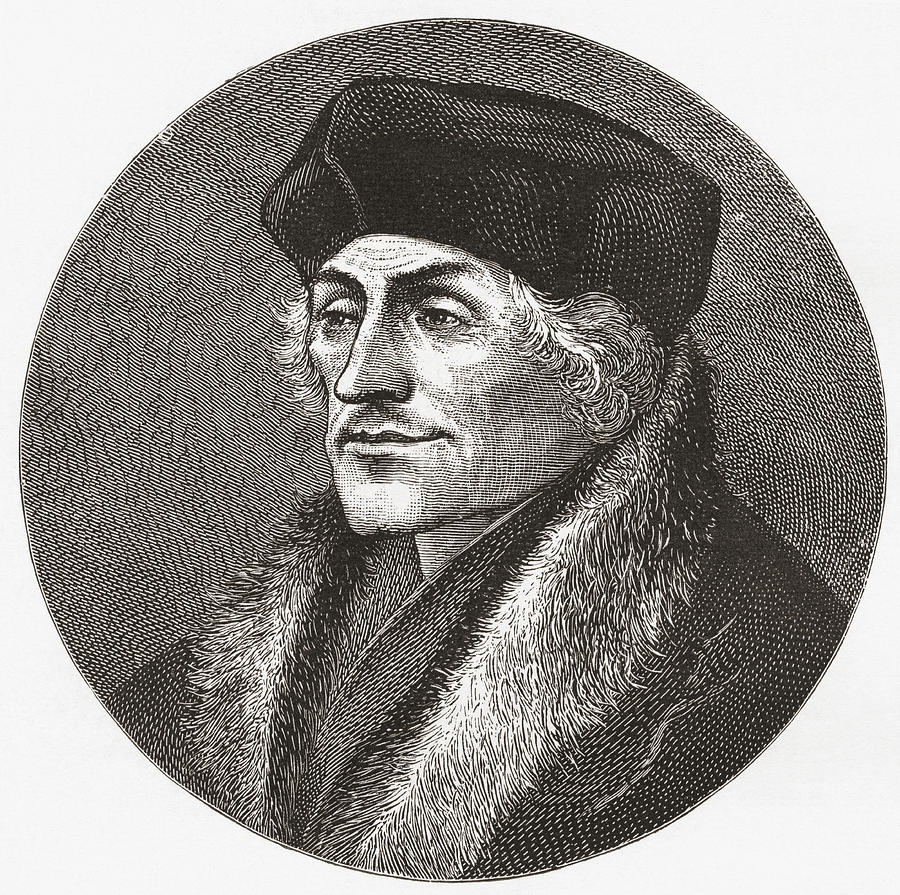
Desiderius Erasmus Roterodamus, 1466 Drawing by Vintage Design Pics
Erasmus. Holbein's studies of Erasmus' hands, in silverpoint and chalks, ca. 1523. ( Louvre) Desiderius Erasmus Roterodamus (also Desiderius Erasmus of Rotterdam) (October 27, c. 1466 - July 12, 1536) was a Dutch humanist and theologian. Erasmus deeply influenced Christian theology during the first half of the sixteenth century.

Hans Holbein the Younger. Erasmus, 1523. Desiderius Erasmus Pinterest Teaching, Search and
Desiderius Erasmus Roterodamus (c.1467 - 1536) , humanist scholar and reformer Earliest work: To Peter Winckel (1484) Latest work: To Conrad Goclenius (28 June) (1536) What's this? Frequently sought works To Duke Frederick of Saxony (14 April 1519) To Martin Dorp (May 1515) To Martin Luther (8 May 1524) To Martin Luther (11 April 1526)
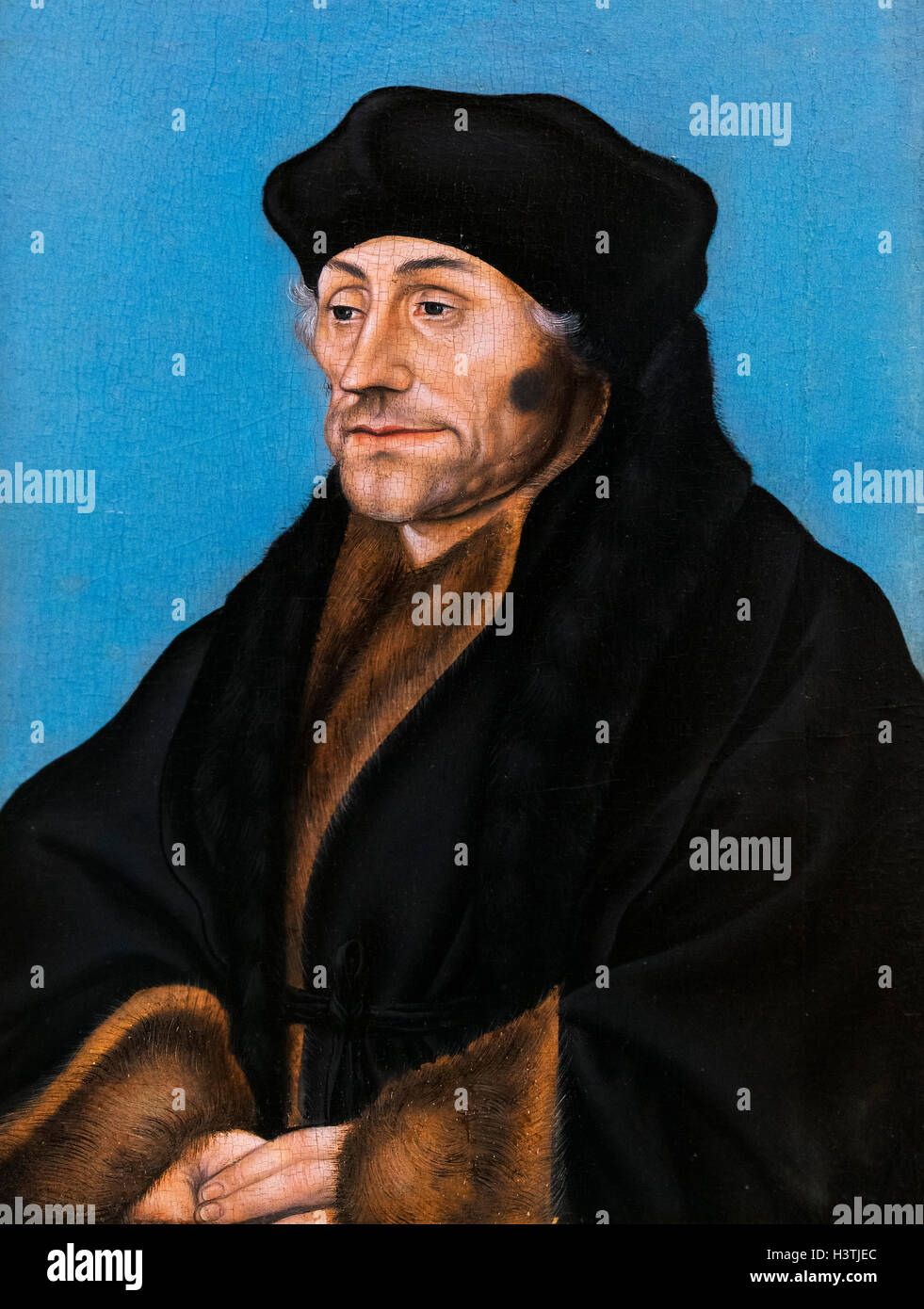
Desiderius erasmus roterodamus Fotos und Bildmaterial in hoher Auflösung Alamy
Desiderius Erasmus Roterodamus was a Dutch Christian humanist, Catholic theologian, educationalist, satirist and philosopher. Through his vast number of translations, books, essays and letters, he is considered one of the most influential thinkers of the Northern Renaissance and one of the major figures of Dutch and Western culture.

Desiderius Erasmus by PENCZ,
Desiderius Erasmus was born in Rotterdam, Netherlands, probably on October 27, 1466, the second son of a priest, Roger Gerard, and Margaret, a physician's daughter. His parents were unmarried at the time of his birth. School life shaped Erasmus from his fifth year onward. His parents enrolled him and his brother at a school in Deventer with the.

Statue of Desiderius Erasmus Roterodamus in the Center of Rotterdam in 3D Print Editorial Photo
ERASMUS AND HERESY With respect to heresy and heretics Erasmus was able to speak in a relativistic, sometimes even light-hearted manner. This will be illustrated. Desiderius Erasmus Roterodamus 1524 (New Häven 1950) and CWE 39, p. 419-447, with Thompson's extensive commentary. 18 Erasmus, Déclarât, ad cens. Lutet.